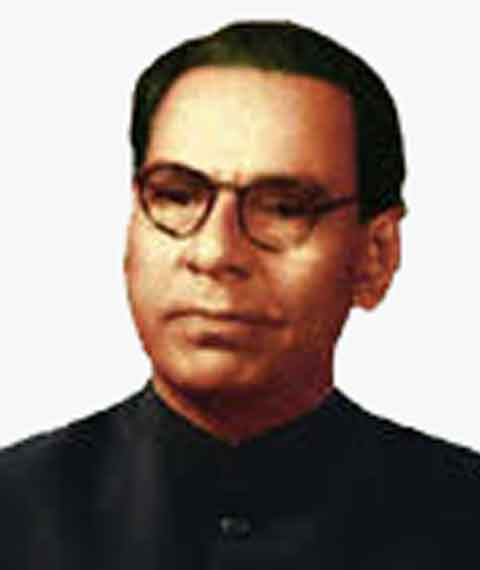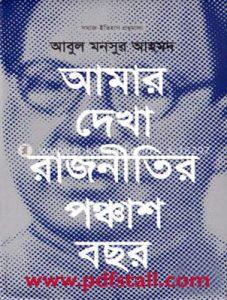
Abul Mansur Ahmed: The Political Leader Who Shaped Bangladesh
Abul Mansur Ahmed was a renowned Bengali author, essayist, and politician who played a significant role in shaping the political landscape of Bangladesh. Born on 16 December 1898 in Shillong, India (now Meghalaya), he grew up in a family of intellectuals who encouraged his passion for literature and politics.
Education and Early Career
Abul Mansur Ahmed attended the University of Calcutta, where he earned a degree in English literature. He later pursued a law degree and started his career as a lawyer. However, his interest in politics soon led him to become involved in the Indian independence movement.
Political Career
In 1937, Abul Mansur Ahmed was elected to the Bengal Legislative Assembly as a member of the Indian National Congress. He played an active role in the Quit India Movement and was imprisoned by the British authorities several times for his political activities.
After the Partition of India in 1947, Abul Mansur Ahmed became a member of the East Pakistan Legislative Assembly. He was one of the founding members of the Awami League, a political party that championed the cause of Bengali nationalism and advocated for greater autonomy for East Pakistan.
Abul Mansur Ahmed was a vocal supporter of the Language Movement of 1952, which aimed to establish Bengali as the official language of East Pakistan. He was one of the leaders of the movement and played a crucial role in the eventual adoption of Bengali as one of the national languages of Pakistan.
In 1954, Abul Mansur Ahmed became the Leader of the Opposition in the East Pakistan Legislative Assembly. He continued to advocate for greater autonomy for East Pakistan and worked tirelessly to promote the interests of the region’s people.
Legacy
Abul Mansur Ahmed was a prolific writer who published several books on politics, history, and literature. His most famous work is “Amar Dekha Rajnitir 50 Bochor,” which is considered a seminal work on the political history of East Pakistan/Bangladesh.

Ahmed passed away on 13 August 1979 in Dhaka, Bangladesh. He is remembered as one of the most prominent political leaders of the region, who fought for the rights and aspirations of the people of Bangladesh. His contributions to Bengali literature and politics continue to inspire generations of Bangladeshis.
Personal Life and Early Activism
Abul Mansur Ahmed was born to a Muslim family in Shillong, India (now Meghalaya). His father, Munshi Mahbub Alam, was a renowned scholar and writer, who instilled in his son a love for literature and a passion for social justice. Ahmed’s mother, Khujesta Khatun, was an educator who encouraged him to pursue his education and to be active in social and political causes.
Ahmed’s early activism began when he was still a student in Calcutta. He became involved in the Indian independence movement and was a member of the Indian National Congress. He also became associated with the Anushilan Samiti, a revolutionary group that advocated for armed struggle against British rule.
Literary Career
Ahmed was a prolific writer and published several books on politics, history, and literature. He was one of the pioneers of modern Bengali literature and played a significant role in the development of the language. Some of his notable works include “Nabiksaheber Jibani,” “Bisad-Sindhu,” and “Purba-Pakistaner Rajnitir Itihas, Galivorer Sofor Nama”
Ahmed was also an accomplished translator and translated several works of English literature into Bengali. He was a strong advocate for the promotion of the Bengali language and literature and played a crucial role in establishing Bengali as the official language of East Pakistan/Bangladesh.
Political Philosophy
Ahmed’s political philosophy was rooted in his belief in democracy, secularism, and social justice. He believed that the people of Bangladesh had the right to self-determination and autonomy, and worked tirelessly to promote their interests. He was a vocal critic of authoritarianism and advocated for the establishment of a democratic system of governance.
Ahmed’s legacy continues to inspire generations of Bangladeshis, who regard him as a symbol of their struggle for freedom and self-determination. His contributions to Bengali literature and politics have made him one of the most beloved figures in the country’s history.